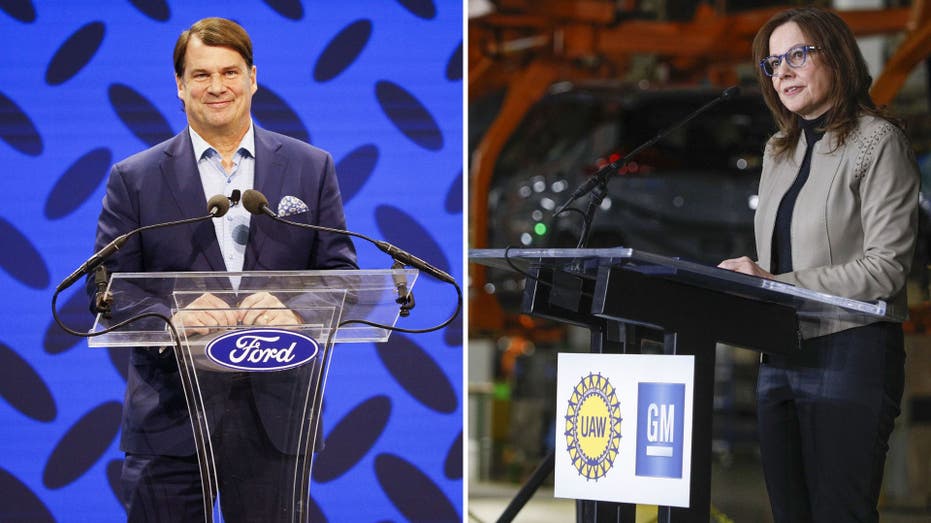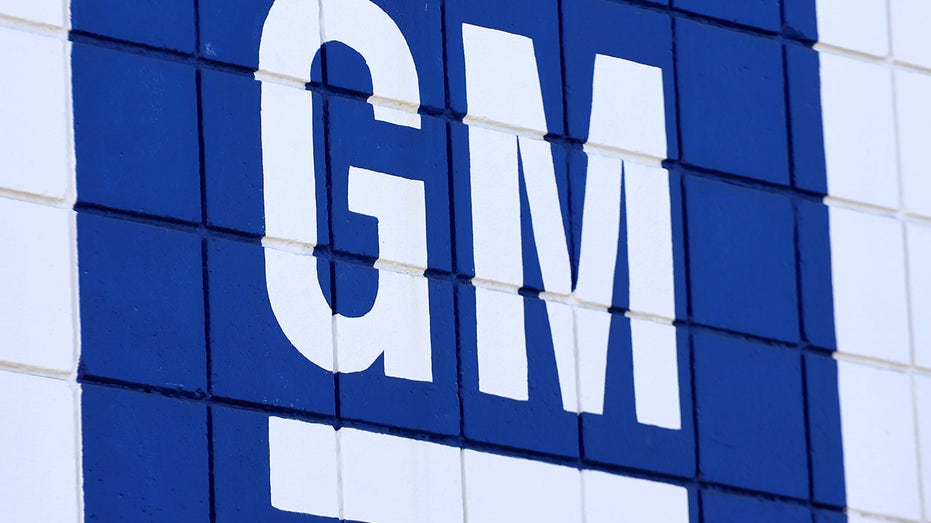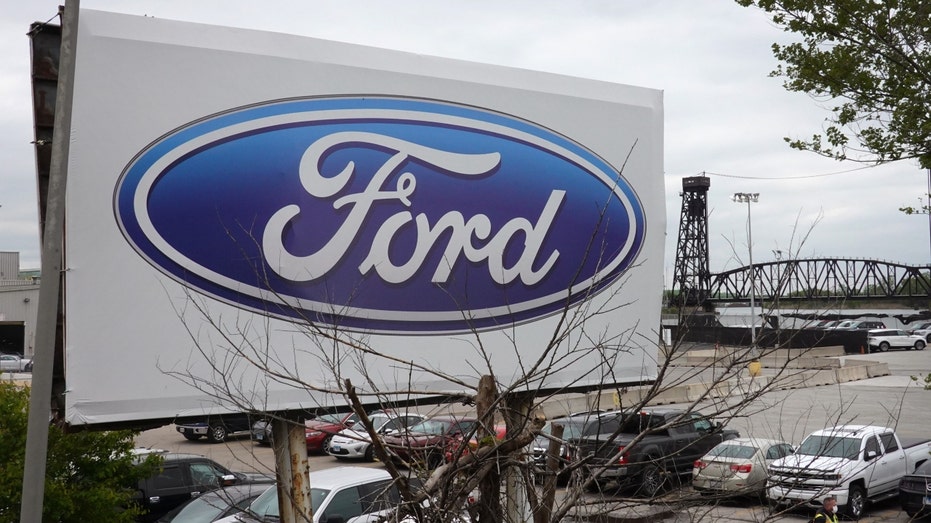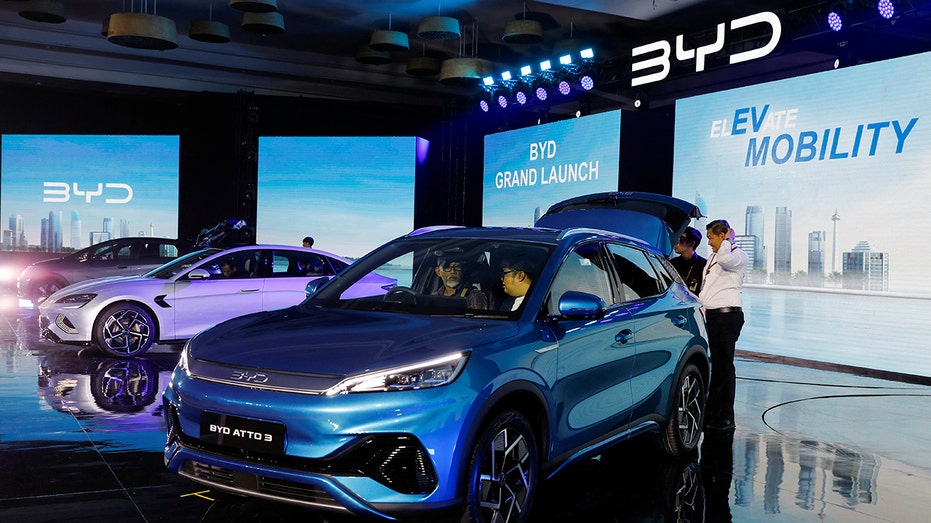Ford, GM CEOs open to partnerships to compete with China
Ford CEO Jim Farley and GM CEO Mary Barra said they are open to collaborating with automakers on EV tech to compete with China
Consumers ‘don’t want to buy’ EVs: Diana Furchtgott-Roth
Heritage Foundation economist Diana Furchtgott-Roth discusses the electric vehicle markets as more automakers pull back on EV production.
The CEOs of leading U.S. automakers Ford and GM on Thursday signaled they are open to considering partnerships to lower the cost of electric vehicle technology to compete with low-cost Chinese EVs looking to the U.S. and European markets.
"If there’s ways that we can partner with others, especially on technologies that are not consumer-facing, and be more efficient with R&D as well as capital, we’re all in," GM CEO Mary Barra told investors at a conference sponsored by Wolfe Research.
Ford CEO Jim Farley also opened the door to collaborating with other automakers on cutting EV battery costs during a separate presentation at the conference Thursday.
The Detroit companies and other Western automakers are facing increasing competition from BYD and low-cost Chinese EV makers that are stepping up their exports of vehicles to Europe, Latin America and Southeast Asia.
FORD’S PROFITS GETTING EATEN UP BY EVS

Ford CEO Jim Farley and GM CEO Mary Barra signaled a willingness to collaborate with other automakers on initiatives to compete with Chinese EV makers. (Bill Pugliano/Getty Images / Getty Images)
BYD is weighing the construction of an assembly plant in Mexico that could serve as a platform to ship EVs to the U.S., according to a report by Nikkei earlier this week.
"If you cannot compete fair and square with the Chinese around the world, then 20% to 30% of your revenue is at risk" over the next several years, Farley said.
| Ticker | Security | Last | Change | Change % |
|---|---|---|---|---|
| F | FORD MOTOR CO. | 13.59 | -0.21 | -1.52% |
| GM | GENERAL MOTORS CO. | 80.68 | -3.56 | -4.23% |
In its latest earnings report, Ford projected a loss of $5 billion to $5.5 billion on its EV division this year. The company launched a "skunk works" team separate from its main engineering unit that is focused on designing a small, low-cost EV that could compete with BYD’s Seagull model.
GM BOUGHT OUT NEARLY HALF OF BUICK DEALERS WHO OPTED AGAINST SELLING EVS

General Motors says it has a chance to break even on its North American EVs during the second half of this year. (Mario Tama/Getty Images / Getty Images)
Ford is also reevaluating its battery strategy as it looks to make its EV offerings more economical.
"We can start having a competitive battery situation. We can go to common cylindrical cells that could add a lot of leverage to our purchasing capability," Farley said. "Maybe we should do (this) with another OEM (automaker)."
Farley said BYD can produce its small Seagull EV for $9,000 to $11,000. Wolfe Research analyst Rod Lache said he estimates Chinese production costs are 30% lower than Western automakers’ costs.
"Last year, 25% of all vehicles sold in Mexico were sourced in China. The world is changing," Farley said.
FORD CONSIDERS AXING CAR FEATURE THAT COULD SAVE COMPANY MILLIONS PER YEAR

Ford is projecting a loss of $5 billion to $5.5 billion on its EV division this year. (Scott Olson/Getty Images / Getty Images)
Farley indicated Ford’s goal for a new EV is to make it profitable within the first year, saying he told the company’s engineers, "You have to make money in the first 12 months. If you can’t make money, we aren’t launching the car."
Barra said GM is already well-positioned to begin breaking even on its North American EVs during the second half of this year if it can reach an annualized production rate of 200,000 to 300,000 vehicles and continue to benefit from federal EV subsidies under the Inflation Reduction Act.
GET FOX BUSINESS ON THE GO BY CLICKING HERE

China's BYD is shipping more EVs to Europe and is considering ways to enter the U.S. market. (REUTERS/Willy Kurniawan / Reuters Photos)
GM missed its 2023 North American EV production targets in part because of problems manufacturing battery modules.
"I own that," Barra said.
She said GM is now on track to overcome those problems as well as fix software glitches that impacted the launch of the Chevrolet Blazer EV this year.
Barra said that, in China, GM’s brands will focus on premium and higher-priced segments as Chinese automakers focus on mainstream market segments.
Reuters contributed to this report.




















